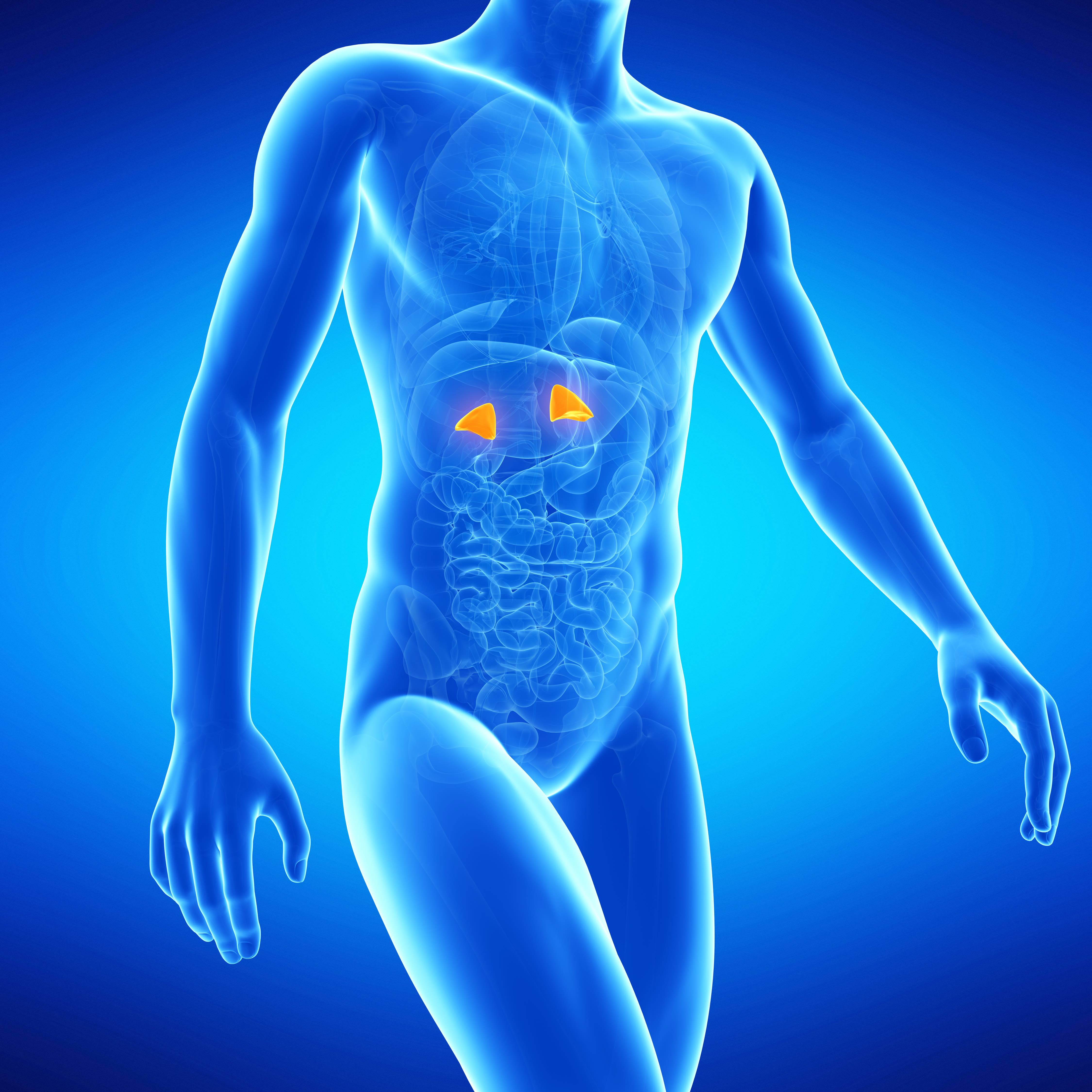
Although located in the center of the body, right above the kidneys, the adrenal glands orchestrate numerous activities through the stress hormones they release, which in turn affect areas of our body like the brain, heart, respiratory system, liver, and intestines.
To obtain a better understanding of how important the adrenal glands are, let us review the magnificent relationship our body has with epinephrine. Epinephrine (also known as adrenaline) is the fight-or-flight hormone. It increases your heart rate, raises your blood sugar, and rushes blood to the muscles and the brain. Let’s see how this vital hormone affects our body:
The Brain:
Fear, anger or pain cause the amygdala (the part of the brain dealing with emotions) to send a distress signal to the adrenal glands, which then respond by pumping epinephrine into the bloodstream, preparing the body for a fight-or-flight response. Although epinephrine does not reach the brain directly, it increases memory storage by stimulating a peripheral nerve. This causes the amygdala and the hippocampus (also known as the emotional center) to store the events in long-term memory. These short intermittent stress periods help boost performance and memory, and may help us perform better on a daily basis.
The Heart:
Epinephrine attaches to receptors in the heart, causing muscle constriction and temporary increase of heart rate and blood pressure. An increase in blood pressure during a stressful situation ensures that the brain has enough nutrients and oxygen to deploy the proper neurological signals to escape the imminent threat—fear or pain.
The lungs:
The lung muscles are dilated when epinephrine attaches, facilitating the ease of breathing and an increase in respiratory rate. This ensures proper oxygenation of skeletal muscles to achieve a stress-free environment.
The Liver:
Physical and emotional stress signals epinephrine to attach to liver cells and cause a breakdown of glycogen into glucose. This process generates energy to cope with the offending stressor. If the liver is unable to meet this higher demand for blood glucose, hypoglycemia (low blood sugar) ensues. When the adrenal glands are sluggish, cortisol is unable to respond to the body’s need for sugar. Thus, a drastic drop in glucose occurs, causing dizziness, electrolyte imbalance and sometimes heart palpitations. Therefore, episodes of hypoglycemia may be a sign of adrenal fatigue.
The Intestines:
Epinephrine constricts blood supply to the gut; therefore, digestion and absorption come to a complete halt. Eating during stressful situations leads to undigested food, which causes inflammation of the intestinal lining and constipation. Chronic intestinal inflammation causes chronic gut flora dysbiosis (unbalance of intestinal flora), thus creating more stress on the body. This cycle repeats itself until adrenal fatigue sets in.
Although the adrenal glands are compared to walnuts and grapes, their effects are much larger than their size would lead us to believe. They impact every part of the body and require perfect function. The originator of the adrenal glands and the body’s perfect orchestration is the Mind of God. May we take a moment of our day and say with the psalmist, “Oh Lord, how great are thy works” (Psalm 92:5).